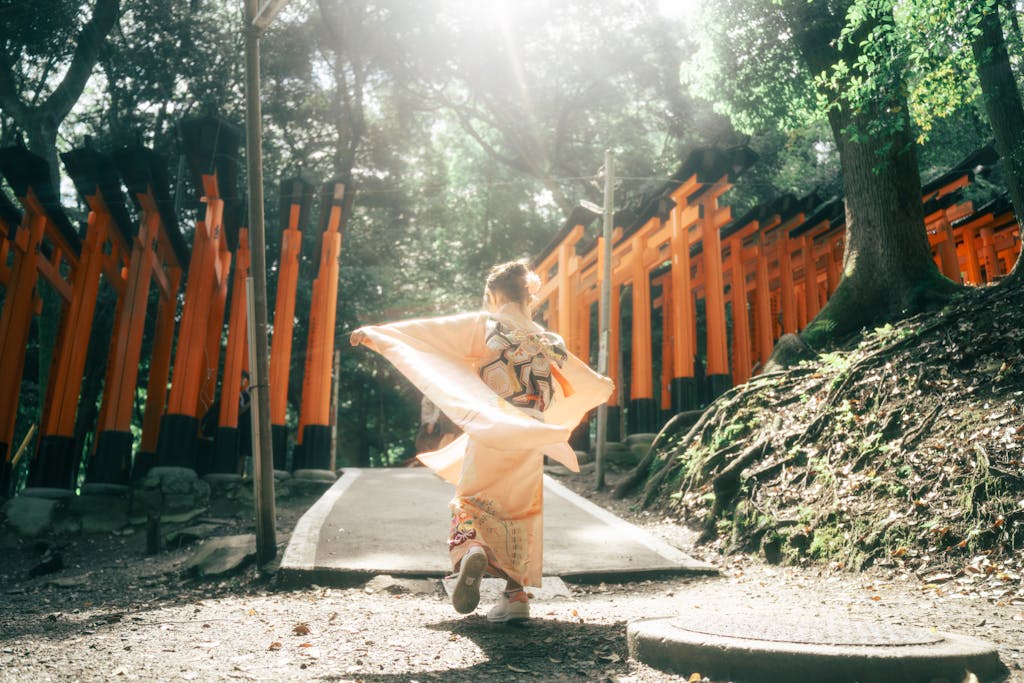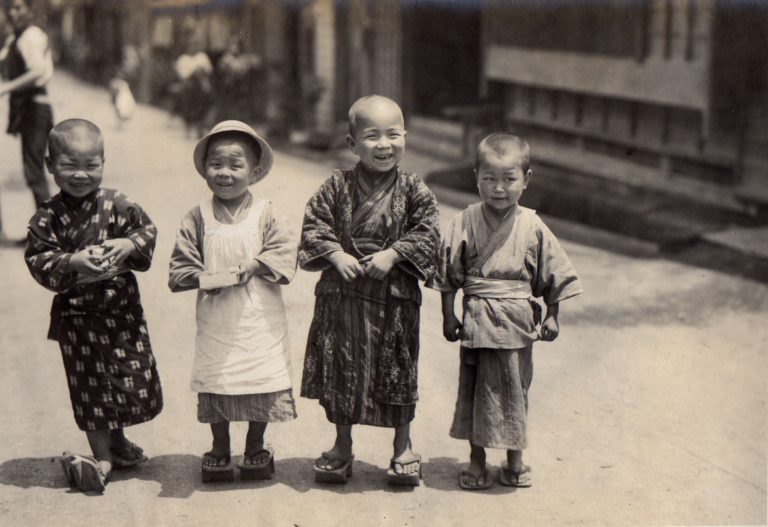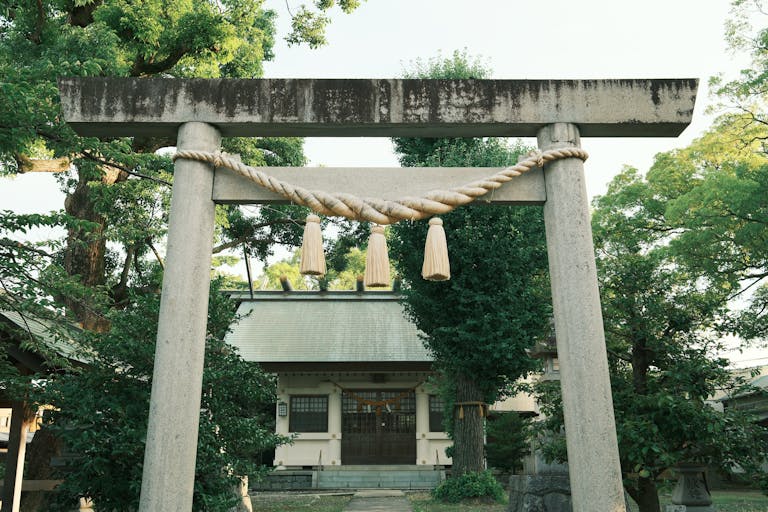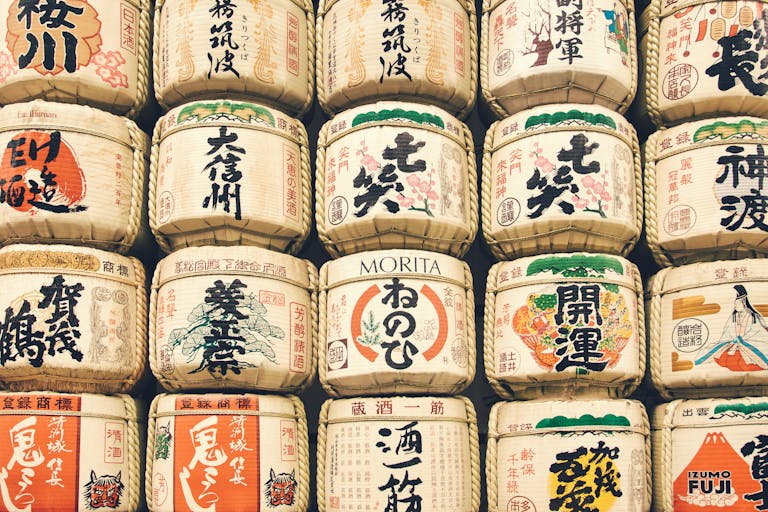Original Language: Unveiling What GHQ Feared and Erased from Japan Part 6

Introduction
For the last 5 posts (Part 1, Part 2, Part 3, Part 4, and Part 5), I’ve been discussing 5 elements in the Shinto offering that were systematically targeted and erased by GHQ occupying forces. They all had undeniable consequences for the Japanese people and their culture. However, nothing has greater influence on a culture than dominion over its language. We’ve all seen it unfold in human history in the world—Native American languages taken by European forces, the Aztec language erased by Spanish conquistadors, the Indian language oppressed by British colonists, and the Japanese language is no exception. Native language for its people is a source of magic, power, and spirituality as thousands of years of cellular remembrance vibrates with the sounds of that specific language to create the alignment, harmony, and manifestation in people. In this post, I will explore how GHQ conspired to take that magic away from the Japanese people. Let’s get rambling!
GHQ’s Plan to Erase Japanese Writing
During the postwar occupation of Japan, the General Headquarters (GHQ) devised a plan to abolish the Japanese writing system entirely and enforce the use of the Roman alphabet. They assumed that the Japanese people were largely illiterate, which, in their view, made them susceptible to military propaganda. However, after conducting research and literacy surveys, GHQ discovered that Japan had an astonishing literacy rate of 98%. Realizing that banning the entire writing system was impractical, they abandoned this plan.
Still, GHQ saw an opportunity to control Japan in a more subtle way—by altering the language itself. As they reformed Japan’s education system, they discovered something deeply embedded in Japanese culture: the concept of kotodama (言霊), meaning “the soul or spirit of words.” The belief that words carry divine energy and influence reality was an integral part of the Japanese worldview. Fearing this mystical power and seeking to weaken the Japanese spirit, GHQ set out to erase, alter, and regulate aspects of the language to diminish its cultural strength.
Erasing Words with Spiritual Significance
One of the first targets was the elimination of certain words and kanji characters with profound spiritual or philosophical meanings. For example, highly revered letter and the word soshiji contains the letter 宗,神,主 meaning each person has the spiritual connection to gods as his own master of spirituality and expresses love, harmony, and gratitude. It is said that the letter and the word were erased from the Japanese language by GHQ, but some believe it is just a made-up letter and a word in modern day that never existed.
GHQ also reformed the way specific words were written. A notable example is the character for ki (life force). Traditionally, it was written as 氣, containing the character 米 (rice) at its core—symbolizing the nourishment and vitality rice provided to the Japanese people, as I wrote in this post. However, GHQ altered it to 気, replacing 米 with 〆, a symbol meaning “to close, end, or terminate.” This seemingly small change shifted the essence of the word, transforming the representation of life force into something associated with limitation or cessation.
Another striking example is the change in the word watashi (私), meaning “I.” Traditionally, it was written as 和多志, which carried meanings of harmony (和), abundance (多), and aspiration (志)—signifying a self that exists in unity with others and a shared purpose for the good of all. GHQ changed the writing to 私, which focuses solely on individuality, separation and self-interest. This subtle shift encouraged a more Western-style individualism, moving away from the communal values deeply rooted in Japanese society.

Personal Experience: A Lingering Instinct
Growing up, I was never consciously aware of these language alterations, yet I instinctively rejected the word watashi (私). Even as a child, I felt an inexplicable aversion to using it, preferring to refer to myself by my name. Teachers and parents insisted that I use watashi, but I never felt comfortable doing so. Instead, I opted for jibun (自分), which means “self,” throughout my life.
Only two weeks ago, upon learning about the GHQ’s modifications to the language, I finally understood the root of my aversion. Realizing the original meaning of watashi (和多志) as a unifying and harmonious concept, I felt an immediate shift—almost as if a spell had been broken. Now, when I use the word, I envision its original form and intention rather than the diluted version imposed by GHQ. I even brush my teeth saying “watashi (和多志)” looking at myself in the mirror to get used to using it.
Language as a Tool of Control
Throughout history, colonial powers have sought to control people by attacking their language. By altering the Japanese writing system, GHQ didn’t just change words; they changed the way Japanese people thought, spoke, and perceived themselves. This was a direct assault on the Japanese spirit, breaking the connection to traditional wisdom, unity, and spiritual strength.
Yet, despite decades of suppression, these forgotten meanings remain embedded in the consciousness of the Japanese people. Even without being taught, there are those who instinctively feel the loss—proof that this knowledge lives on at a cellular level. This realization gives me hope. If the memory of our true language still lingers within us, then it is not too late to reclaim and restore it.
What’s Next?
As I wrote at the beginning of this blog post, even after the language has been suppressed for a few decades, the cellular remembrance of millennia just doesn’t go away. I rejected my own native language, Japanese for nearly 2 decades and predominantly used English during that time. When I realized that I might have been mistakenly hating my culture based on indoctrination, and I became open to embracing my lineage and language again, it was like the chain of curse slowly coming apart and off my body and soul. There’s an undeniable vibration that my cells remember when I hear and speak the Japanese language. I can feel that it moves multitudes of energy within me that other languages cannot. That I feel is pure magic. I am absolutely grateful for actually learning to speak and write in English so that I can communicate with a whole lot more people in the world than if it was just Japanese. Also by completely eliminating Japanese language use from my life for a long time, I was able to witness the great effect of using my own native language. I believe that everything happens for the good of all, and after all, my experience of rejecting the Japanese language, though painful at times, was an important step for my restoration. Do you have a native language? Did you gain any useful piece or tool on this ramble for your healing journey? I hope that you did. Thank you for joining me on this rambling exploration down the path of the Japanese language. The next and the final post of this series is on Lunisolar calendar, the original system that Japanese used to keep harmony and rhythm with Nature. I will see you on the next rambling journey. Keep up the great work, friends! みんな頑張れ!
P.S. Please feel free to leave a comment below or sign up for my periodic newsletter so we can keep in touch! Looking forward to connecting with you sometime.





